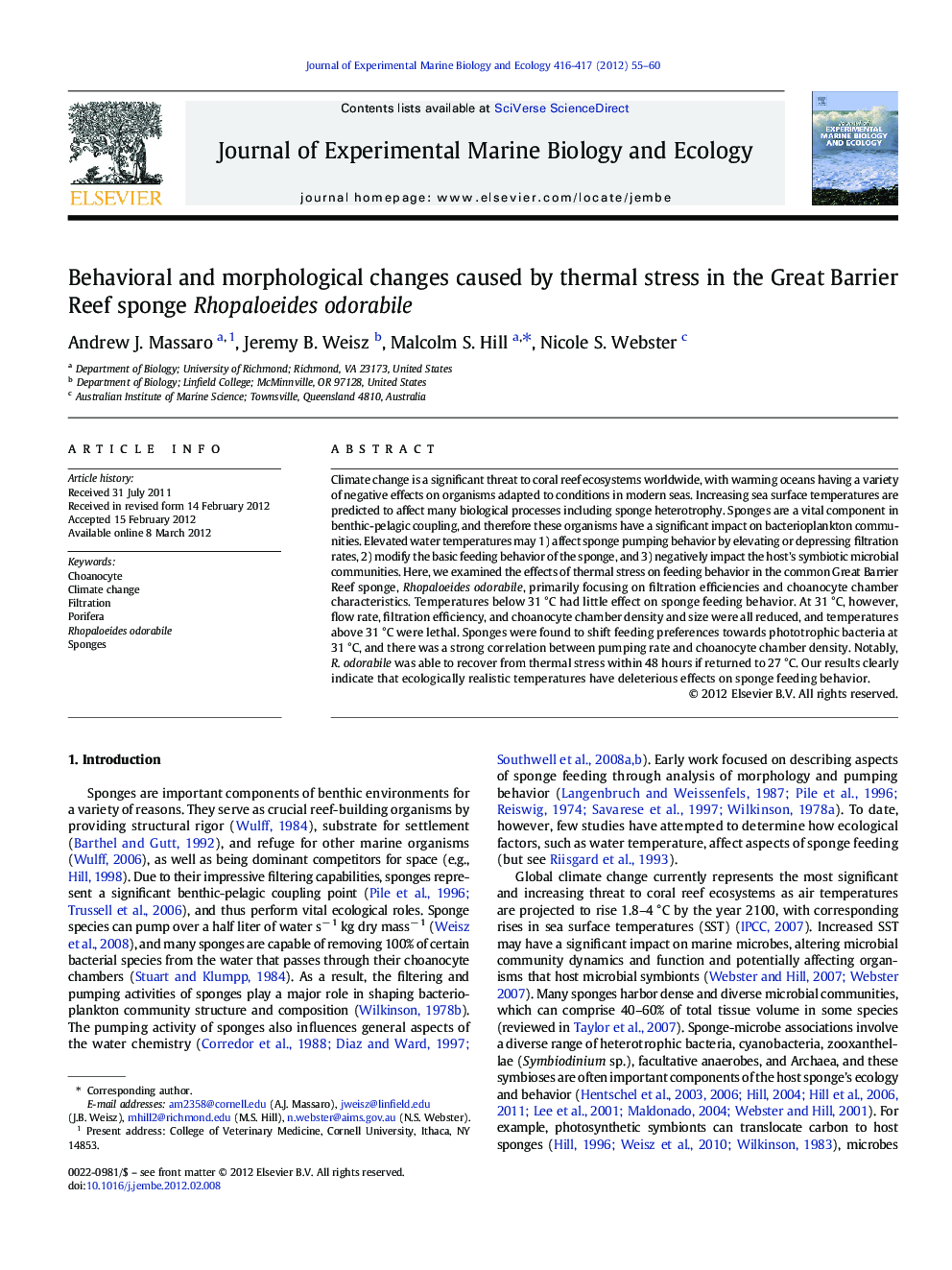| کد مقاله | کد نشریه | سال انتشار | مقاله انگلیسی | نسخه تمام متن |
|---|---|---|---|---|
| 4396091 | 1618449 | 2012 | 6 صفحه PDF | دانلود رایگان |

Climate change is a significant threat to coral reef ecosystems worldwide, with warming oceans having a variety of negative effects on organisms adapted to conditions in modern seas. Increasing sea surface temperatures are predicted to affect many biological processes including sponge heterotrophy. Sponges are a vital component in benthic-pelagic coupling, and therefore these organisms have a significant impact on bacterioplankton communities. Elevated water temperatures may 1) affect sponge pumping behavior by elevating or depressing filtration rates, 2) modify the basic feeding behavior of the sponge, and 3) negatively impact the host's symbiotic microbial communities. Here, we examined the effects of thermal stress on feeding behavior in the common Great Barrier Reef sponge, Rhopaloeides odorabile, primarily focusing on filtration efficiencies and choanocyte chamber characteristics. Temperatures below 31 °C had little effect on sponge feeding behavior. At 31 °C, however, flow rate, filtration efficiency, and choanocyte chamber density and size were all reduced, and temperatures above 31 °C were lethal. Sponges were found to shift feeding preferences towards phototrophic bacteria at 31 °C, and there was a strong correlation between pumping rate and choanocyte chamber density. Notably, R. odorabile was able to recover from thermal stress within 48 hours if returned to 27 °C. Our results clearly indicate that ecologically realistic temperatures have deleterious effects on sponge feeding behavior.
► Temperatures below 31 °C have no effect on feeding behavior and morphology.
► At 31 °C, flow rate and choanocyte chamber density and size were reduced and filtration efficiencies were altered.
► Temperatures above 31 °C were lethal.
► R. odorabile is able to recover from short-term thermal stress.
Journal: Journal of Experimental Marine Biology and Ecology - Volumes 416–417, 15 April 2012, Pages 55–60